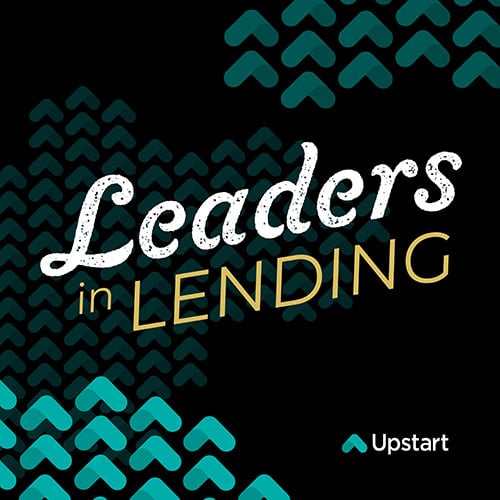Kelvin Chen has joined CBA from Barclays U.S. Consumer Bank, where he led its Regulatory Affairs function and was a member of the Consumer Bank’s Executive Committee. Prior to his time with Barclays, Kelvin led Capital One’s Bank Regulatory and Policy team, as an executive in their Legal Department. Kelvin was responsible for Capital One’s policy advocacy portfolio and acted as Capital One’s subject matter expert on a range of legal and policy issues, such as antitrust and interchange. Kelvin also led the LGBTQ+ pillar for the Capital One Legal Department’s diversity, inclusion, and belonging organization. In his time in government, Kelvin created and led the Federal Reserve Board's Innovation Policy team in the Division of Supervision & Regulation. There, he set out the agency’s initial frameworks on a range of technology policy matters, including the use of artificial intelligence in supervised institutions, data aggregation, and stablecoins. Kelvin previously led policy development at the Consumer Financial Protection Bureau for emerging payments and, separately, mandatory arbitration provisions. In prior roles, Kelvin advised agency principals at the Federal Trade Commission on consumer protection-related policy and enforcement matters and was a litigator in the New York offices of Morrison & Foerster LLP and Cadwalader, Wickersham & Taft LLP.
Leaders in Lending | Ep. 138
Regulation Reimagined: Banking Beyond Partisanship
This week, hosts Lynn Sautter Beal and Matt Snow are joined by Kelvin Chen, Senior Executive VP, Head of Policy at the Consumer Bankers Association. Kelvin shares his assessment of the current landscape of financial regulation, innovation, and advocacy.


GUEST SPEAKER
Kelvin Chen

ABOUT
Consumer Bankers Association (CBA)
The Consumer Bankers Association (CBA) is the only member-driven trade association focused exclusively on retail banking. Whether buying a home, financing an education or launching a small business, since 1919, our members have partnered with consumers to help them achieve the American dream. Our Corporate Members include the nation's largest retail banks, with 85% holding over $10 billion in assets. Our Associate Members represent the premier providers of goods and services to banks. Member loyalty is reflected in our membership renewal rate, which consistently remains above 90 percent. Our 14 standing committees, subcommittees and working groups include top executives from our member banks with expertise in each segment of retail banking. The Consumer Bankers Association partners with the nation's leading retail banks to promote sound policy, prepare the next generation of diverse bankers to lead the industry, and finance the dreams of consumers and small businesses.
Key Topics Covered
- How politicization of financial regulation has affected the accuracy of facts presented by key players
- The broad impact of the recent Executive Order on AI
- Why banks should ramp up their initiatives to educate the public and build trust
- The current regulatory squeeze on regional banks

“Now, from the outside in, it feels like the agency is starting with the headline, and then working backwards.”


"We're seeing such a case of regulatory change in an uncoordinated manner. In my limited government career, I've never seen so much change happening from so many different places."
EPISODE RECAP & SUMMARY
No one likes to be blindsided by change — perhaps least of all when it affects finances. Regulations — though typically meant to improve circumstances — can be disruptive without the proper prep, foresight, and collaboration.
With bias and misleading headlines scattered across the web bent on picking facts that support their statements, having committees and personnel dedicated to preserving unbiased reports and supporting banks and consumers is critical.
That’s where Kelvin Chen, Senior Executive VP and Head of Policy at the Consumer Bankers Association, comes in to ensure an approach to financial regulation that centers the consumer experience and a need for innovation above political influence.
Chen has no shortage of expertise, having worked in both the private and public sectors (including the CFPB), always with an edge for advocacy — his value of fair treatment and forward motion drive him to move the needle however he can while building trust with consumers and working towards a more sustainable future.
Why banks should ramp up their initiatives to educate the public and build trust
Misinformation is rampant online — everyone knows this — and yet it’s all too easy to let headlines and biased articles sway our image of an industry, even unconsciously, through consistent exposure.
“One of the things we're realizing as a banking industry is we have to tell our own narrative better,” Chen said. “Because, if we don't — people are painting a picture of us if we're not painting that picture for them.”
That means charts, presentations, meetings, and generally “nerding out” with reporters, consumers, Capital Hill occupants, and more to get an accurate picture across, based on unbiased facts. In other words, advocating for the truth of banking today.
“I always used to say this when I was in government: the average American has to hear a song seven times before they like it. Depending on what you think of government regulators, they’re either better or less than average,” Chen said. “It takes time, but we're doing that work, trying to pay into building those relationships and trying to earn that trust.”
How the CFPB is approaching fintech and AI integrations
Navigating the waters of big banks and relationship banking includes staying on top of fintech innovations. Chen is no stranger to tech advancements, having spoken on the subject — specifically AI — during his time at the Fed.
“I did a speech with Lael Brainard, who was amazing — we did a speech in 2017 about where she saw artificial intelligence going in financial services,” Chen said. “One of the things then Governor Brainard said was, ‘You don't always need to reinvent the wheel; you need to stop and look and see what toolkit you already have, and then see what the incremental fixes you need to make are.’”
As it turns out, there are many regulations and guidances that apply to the use of artificial intelligence already in place, such as:
- Fair lending
- Model risk management
- Guidance on third-party risk management
- Guidance on adapting to new technologies and products
- And more
“There's a lot of great talk, and collaboration needs to happen there, but there's a lot of good tools to start with,” Chen continued.
The CFPB continues to lean into the use of AI and financial services, which could raise some questions about protections for consumers.
“The CFPB was created to ensure that consumers get the same protections whether they're with banks or non-banks,” Chen said. “There's so much good that the bureau could do if they would just take that framework and start talking to non-banks.”
Where big banks — which are a prime focus — have the frameworks and teams prepped and prepared for this type of fintech and AI involvement, non-banks are unequipped with the same regulations and safety measures and need more guidance.
Coping with rising challenges and the lack of collaboration across current regulations
Political figures and groups are, unfortunately, not known for their top-tier collaboration. But collaboration is what we need to see positive change and navigate the increasingly tumultuous waters of the banking industry.
“In my limited government career, I've never seen so much change happening from so many different places in a non-together way,” Chen said.
Think about the banker trying to make sure they can provide low-cost checking account services to consumers, a platform that consumers can build their lives on, with a P&L they’re trying to manage down to a penny, and the CFPB coming after them with overdraft regulation that can limit it to anywhere from three to $14 — A CFPB set price.
And, at the same time, the Federal Reserve is coming in cutting debit interchange rates by a third, with Basel rules that would require them to hold capital against this CFPB overdraft credit, and the CFPB requiring them to create APIs for third parties that they're supposed to pay for, forever.
That’s a lot of red tape.
“And then there is this 1034 C thing where we're supposed to give away records to consumers for free, whatever they may ask for. I just — I don't see how that's sustainable,” Chen said.
To build a more trust-filled, consumer-first system and regulations, there must be more collaboration and communication across the board — Chen is on the front lines of making that happen, but it will take consistent check-ins for a long-term solution.
Stay tuned for new episodes biweekly on the Leaders in Lending Podcast.



